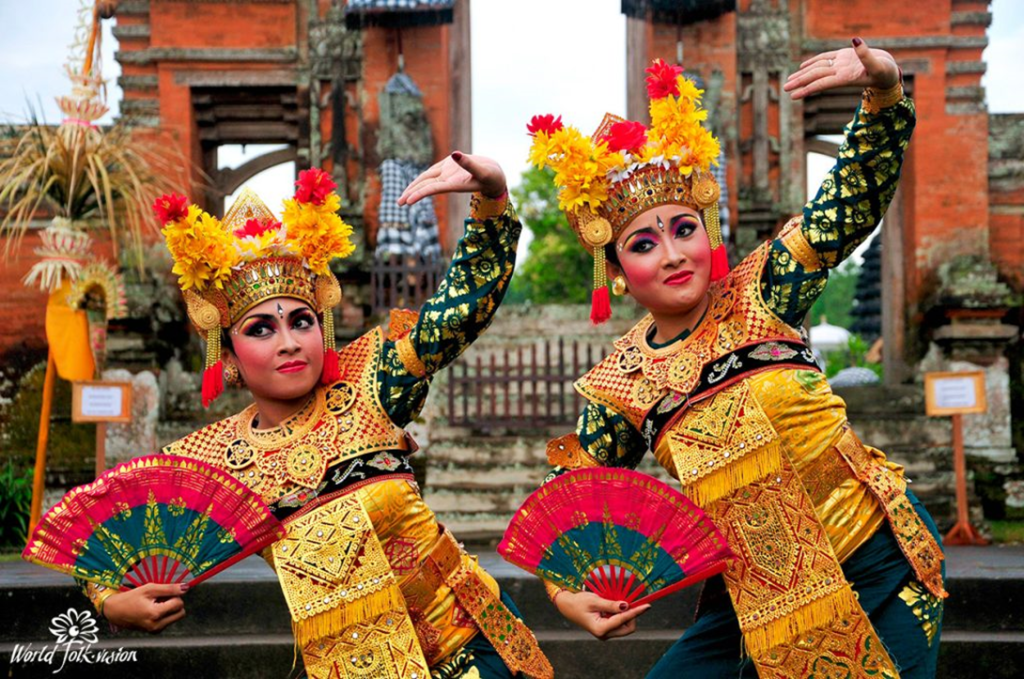
Indonesia, the largest archipelago in the world, offers unparalleled cultural and natural diversity. From the vibrant cities of Jakarta and Surabaya to the tranquil landscapes of Bali, Java, and Sumatra, this country is the perfect destination for those seeking adventure, relaxation, and a deep connection with nature. At Asia Charm DMC, we offer you the possibility to discover Indonesia in an authentic way, with personalized itineraries that highlight the best of this wonderful country.
Airports

Indonesia has several international airports that connect the country to various destinations worldwide. Here are some of the major international airports:
- Soekarno-Hatta International Airport (CGK) – Located in Jakarta, it’s the largest and busiest airport in Indonesia.
- Ngurah Rai International Airport (DPS) – Situated in Denpasar, Bali, it’s a key gateway for tourists visiting the island.
- Juanda International Airport (SUB) – Located in Surabaya, this airport serves as an important hub for Eastern Indonesia.
- Kualanamu International Airport (KNO) – Near Medan, North Sumatra, it’s a significant airport for international and domestic flights.
- Banjarmasin Syamsudin Noor Airport (BDJ) – This airport serves Banjarmasin and the surrounding areas in South Kalimantan.
- Sam Ratulangi International Airport (MDC) – Located in Manado, North Sulawesi, it’s a hub for flights to other parts of Indonesia and some international destinations.
- Hasanuddin International Airport (UPG) – Situated in Makassar, South Sulawesi, it serves as a major gateway for the region.
These airports facilitate international travel and trade, connecting Indonesia with the rest of the world.
Visa

Tourist visas for Indonesia can vary based on nationality and the length of stay. Here are the main options:
- Visa-Free Entry: Citizens from certain countries can enter Indonesia without a visa for up to 30 days. This is usually non-extendable.
If you wish to extend your trip in Bali and want to stay foro ver 30 days then you will need to purchase a Visa on Arrival (VOA) on your entry into Bali. This is easily done and should not be stressed over. Once you are in the country, you can then either hire a visa agent or complete the paperwork yourself to be granted a further 30 day visa
- Visa on Arrival (VoA): Travelers from eligible countries can obtain a Visa on Arrival at designated airports and seaports. This visa allows a stay of up to 30 days and can be extended for another 30 days.
- Tourist Visa (B211A): For longer stays, you can apply for a tourist visa before traveling. This visa typically allows for a stay of up to 60 days and can often be extended.
Please always check the latest regulations before traveling, as visa policies can change
Electricity
Indonesia primarily uses flat and round two-pin outlets. The standard plug types are:
- Type C: This is a two-pin round plug, commonly used across many countries.
- Type F: Also known as the “Schuko” plug, it has two round pins with earth clips on the side and can accommodate thicker plugs.
The voltage in Indonesia is generally 230V, and the frequency is 50Hz. If you’re traveling there, it’s a good idea to check if your devices are compatible with this voltage and to bring an appropriate adapter if needed.
Food
Indonesian food is incredibly diverse and vibrant, reflecting the country’s rich cultural heritage and regional variations. Here are some key aspects of Indonesian cuisine:
Regional Diversity

- Java: Popular dishes include Nasi Goreng (fried rice) and Sate (skewered meat).
- Bali: Famous with dishes like Babi Guling (suckling pig) and Lawar (a traditional salad).
- Sumatra: Spicy food is prevalent, with dishes like Rendang (slow-cooked beef in coconut milk and spices) and Sambal (chili sauce).
- Sulawesi: Known for seafood, with dishes like Coto Makassar (beef soup) and Ikan Bakar (grilled fish).
Health & insurance
It’s generally recommended that tourists get certain common vaccinations before traveling to Indonesia.
Additionally, check if there are any specific COVID-19 vaccination or entry requirements. It’s best to consult with a healthcare provider for personalized advice based on your travel plans and health history.
Indonesia had specific policies regarding travel insurance related to COVID-19. Here are some key points to consider:
- Travel Insurance Requirement: Many travelers are required to have travel insurance that covers COVID-19 treatment. This is to ensure that visitors can manage any potential health issues during their stay.
- Minimum Coverage: The insurance policy typically needs to cover a minimum amount (often around $25,000) for COVID-19-related medical expenses.
- Proof of Insurance: Travelers may be asked to show proof of insurance upon entry.
- Entry Regulations: It’s essential to check the latest entry regulations, as they can change frequently based on the COVID-19 situation.
Hotel options
Indonesia offers a wide range of hotel options to suit different budgets and preferences. Here’s a general overview:

- Luxury Hotels: Major cities and tourist destinations, such as Bali, Jakarta, and Yogyakarta, feature high-end resorts and hotels with world-class amenities, spas, and dining options.
- Mid-Range Hotels: There are plenty of comfortable mid-range hotels and boutique accommodations that offer good value, often with personalized service and local charm.
- Budget Accommodations: Hostels, guesthouses, and budget hotels are widely available, especially in popular tourist areas. These options are affordable and often cater to backpackers and solo travelers.
- Unique Stays: Indonesia also has unique lodging options like eco-lodges, traditional homestays, and villas, especially in places like Ubud, Bali, and remote islands
Internet
Internet access in Indonesia varies significantly by region:
- Urban Areas: Major cities like Jakarta, Bali, and Yogyakarta have good internet connectivity, with many hotels, cafes, and public places offering Wi-Fi. Mobile data is also widely available.
- Tourist Destinations: Popular tourist spots generally have decent internet access, though speeds may vary.
- Rural Areas: In more remote or rural regions, internet access can be limited, with weaker signals and fewer available connections.
- Mobile Data: Prepaid SIM cards with mobile data are easily available and can provide a reliable internet connection, even in areas with limited Wi-Fi.
Overall, while internet access is good in many places, it’s wise to prepare for possible limitations in more isolated areas.
National Holidays

Indonesia has several national holidays that reflect its diverse culture and traditions. Here are the main national holidays:
- New Year’s Day (Tahun Baru Masehi) – January 1
- Chinese New Year (Tahun Baru Imlek) – Dates vary (usually January or February)
- Holi (Hari Raya Nyepi) – Date varies (usually in March; Balinese Day of Silence)
- Good Friday (Hari Jumat Agung) – Date varies (Christian holiday)
- Eid al-Fitr (Hari Raya Idul Fitri) – Dates vary (end of Ramadan)
- Eid al-Adha (Hari Raya Idul Adha) – Dates vary (approximately 70 days after Eid al-Fitr)
- Independence Day (Hari Kemerdekaan) – August 17
- Islamic New Year (Tahun Baru Hijriyah) – Date varies (usually in July or August)
- Christmas Day (Hari Natal) – December 25
These holidays are celebrated with various traditions and festivities across the country.
4o mini
ChatGPT có th
Religion

Indonesia is a diverse country with a rich tapestry of religions. Here are the main religions practiced:
- Islam: The predominant religion, with around 87% of the population identifying as Muslim. Indonesia is home to the largest Muslim population in the world.
- Christianity: Approximately 10% of the population practices Christianity, with both Protestantism and Catholicism represented, particularly in regions like Sulawesi and Nusa Tenggara.
- Hinduism: Around 1.7% of the population, primarily in Bali, where Hindu culture and traditions are prominent.
- Buddhism: A small percentage of the population practices Buddhism, mainly among Chinese Indonesians and in areas like Jakarta and Bali.
- Confucianism: Also practiced, especially among the Chinese community.
- Traditional Beliefs: Many indigenous groups maintain their own traditional spiritual practices, often blending elements of their ancestral beliefs with other religions.
The country’s constitution guarantees freedom of religion, and the diverse religious practices contribute to Indonesia’s rich cultural heritage.
Safety
Traveling to Indonesia can be safe, but like any destination, it requires some precautions. Here are a few considerations:
- General Safety: Most tourists experience a safe visit. Petty crime, such as pickpocketing and scams, can occur in crowded areas, so it’s wise to stay alert.
- Natural Hazards: Indonesia is prone to natural disasters like earthquakes and volcanic eruptions. Stay informed about the regions you’re visiting and follow local advice.
- Health Precautions: Ensure you’re up-to-date on vaccinations and take necessary health precautions, especially in rural areas where medical facilities may be limited.
- Transport Safety: Be cautious when using public transportation or hiring drivers. Opt for reputable services and always wear seatbelts.
- Cultural Sensitivity: Respect local customs and traditions, especially in more conservative areas, to avoid misunderstandings.
- Travel Advisories: Check your government’s travel advisories for the latest information regarding safety and security.
Overall, with the right precautions, many travelers enjoy a safe and enriching experience in Indonesia!
Timezone
Indonesia spans three time zones:
- WIB (Western Indonesia Time): UTC+7, which includes Jakarta, Bandung, and Sumatra.
- WITA (Central Indonesia Time): UTC+8, covering Bali, Sulawesi, and parts of Kalimantan.
- WIT (Eastern Indonesia Time): UTC+9, which includes the Maluku Islands and Papua.
Keep in mind that Indonesia does not observe Daylight Saving Time, so these time zones remain consistent throughout the year.
Water
It is not advisable to drink tap water but bottled mineral water is safe and available everywhere.

Indonesia has a tropical climate, which means it’s warm year-round. However, the best time to visit is during the dry season, from May to September, when the weather is cooler and more pleasant to explore its many attractions.
Dry season (May to September): This is the ideal time to visit the main islands such as Bali, Java and Sumatra. Temperatures range from 25 to 30°C, and conditions are perfect for diving, hiking, and exploring temples. Rainy season (October to April): During these months, rains are frequent, especially in the afternoons. However, the islands of Bali and Lombok are still popular, as rains are usually brief and the landscape is green and lush.
Before designing your route, it’s important to decide if you want to focus on the essentials or if you prefer a more comprehensive journey.
